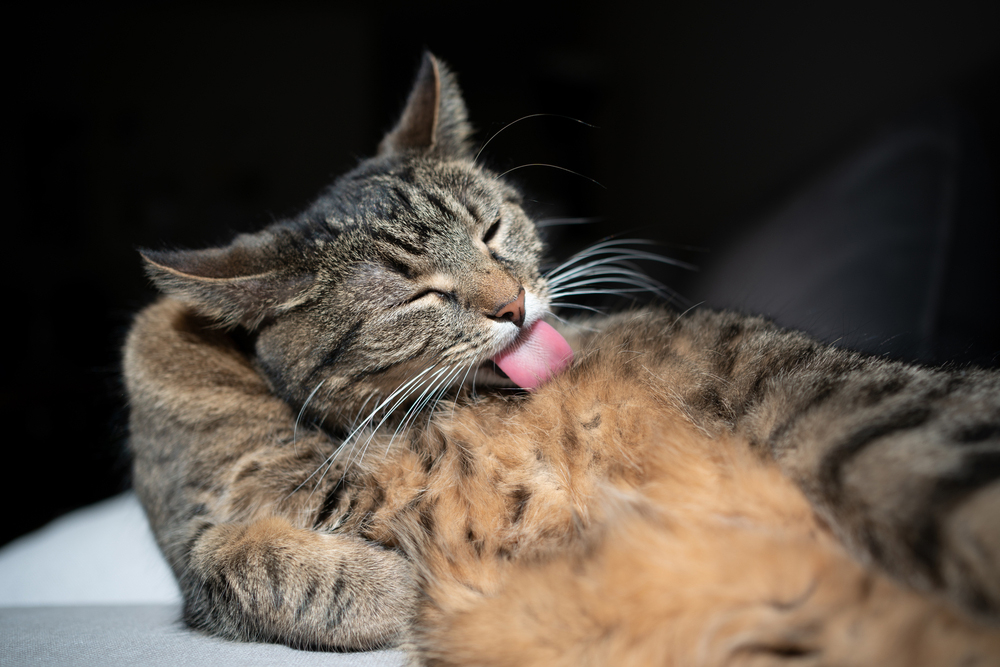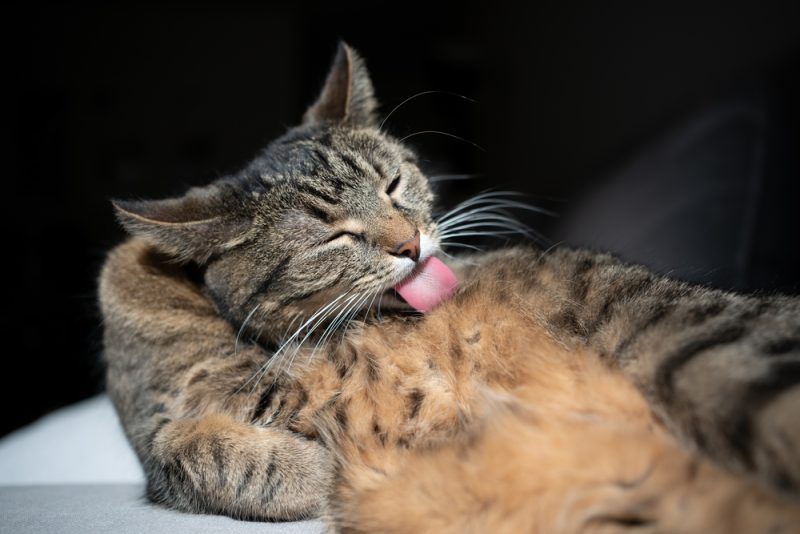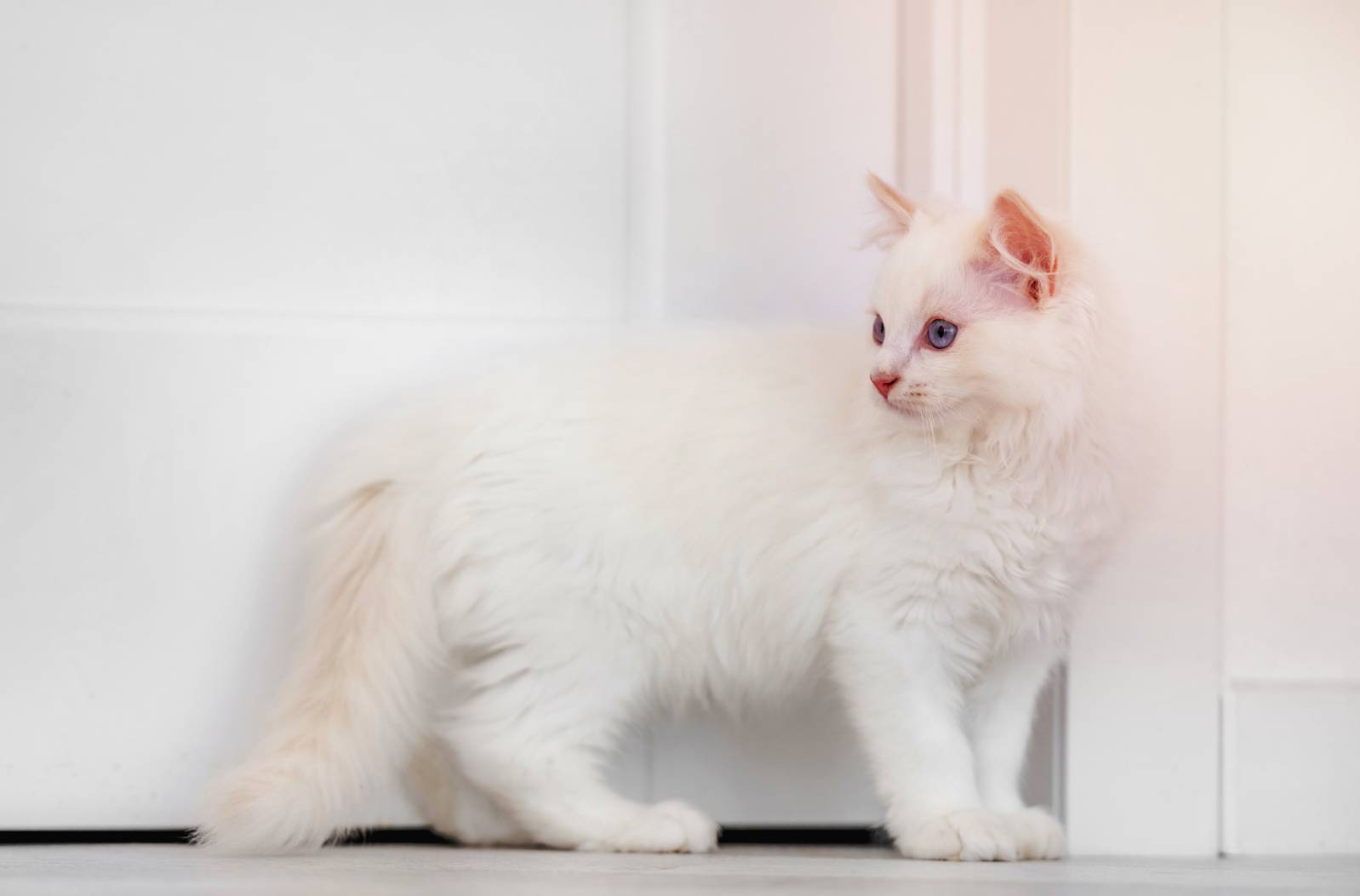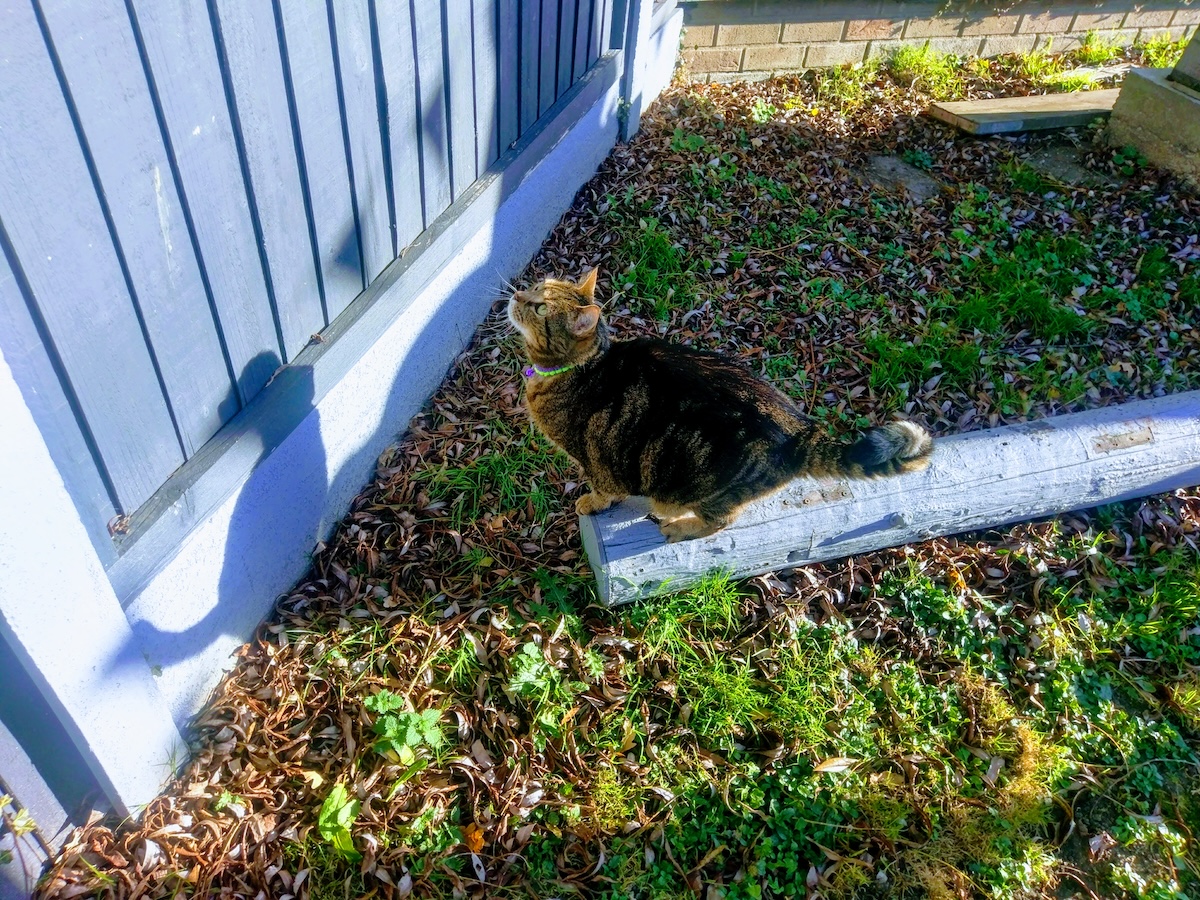Click to Skip Ahead
Cats normally spend a great deal of time each day grooming themselves, and it’s a perfectly normal behavior. However, sometimes the grooming can get out of hand, and some cats can lick their belly raw. If this is happening to your pet, know that there are several reasons that this might happen, and fortunately, there are also solutions.
Common Causes of Overgrooming That Can Lead to a Raw Belly
1. Allergies
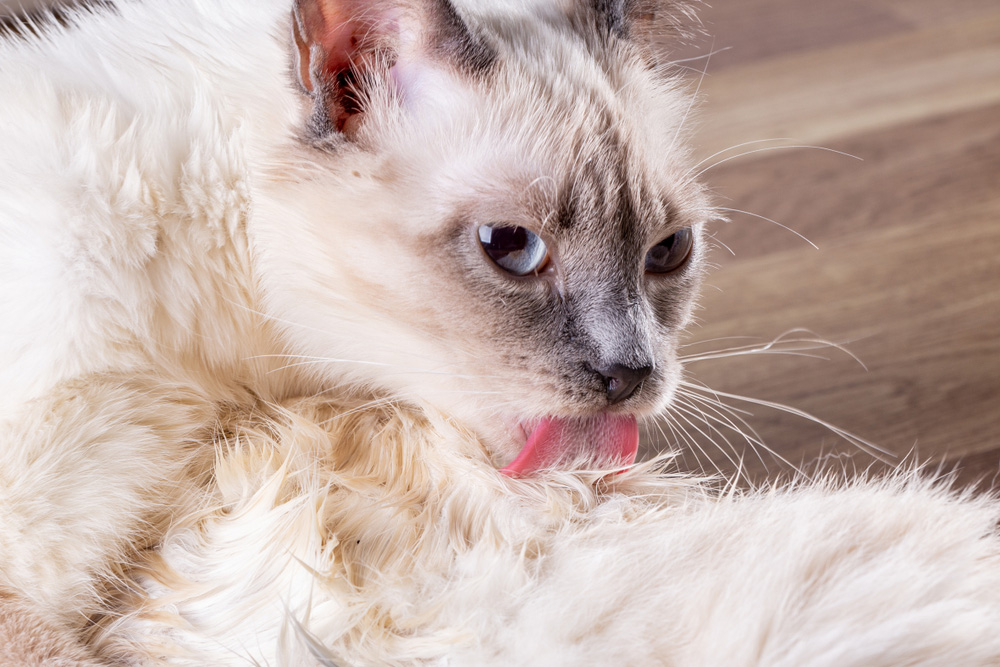
Cats can have allergies to various things, including food, pollen, fleas, or substances in their environment. If they come into contact with them, they can suffer from various clinical signs, which can include coughing, sneezing, vomiting, flatulence, diarrhea, and itchy skin, and this can lead to overgrooming.
Fleas, mites, or other parasites can cause severe itching and discomfort, causing a cat to lick their skin excessively, especially in sensitive areas like their belly, leading to raw spots. Cats can develop bacterial and fungal infections on their skin, much like humans, which can lead to itching, scratching, and excessive grooming anywhere on the body, including the belly. Often, these infections set in after the skin has already inflamed or sore. Felines often lick themselves as a soothing mechanism. If a cat is stressed, anxious, or bored, they may engage in excessive grooming, which can lead to raw spots. Hormone imbalances, like hyperthyroidism, can lead to several issues, including weight loss, increased appetite, and excessive grooming, which can manifest in the belly area. Cats can suffer from a condition known as feline psychogenic alopecia, which can lead to excessive licking and the pulling out of tufts of hair. It doesn’t have an underlying cause. Unfortunately, overgrooming can be a sign of cancer, especially if your cat is experiencing pain or you notice other signs, such as dry and brittle fur, hair loss, and excessive shedding. Sometimes cats will groom their belly if they are experiencing pain from conditions like inflammatory bowel disease or pancreatitis. You should be concerned and consult a veterinarian if your cat’s licking leads to hair loss, raw skin, or signs of infection or if they seem to be in distress or exhibit significant changes in behavior or appetite. While any cat can develop the habit of licking their belly raw, it might be slightly more common in breeds with known skin sensitivities or predispositions to allergies, such as Siamese or Sphynx cats (although hair loss won’t be a noticeable sign in the Sphynx!). Pheromone diffusers, which mimic the natural pheromones that cats produce, can help your cat feel more relaxed, which can lead to less excessive grooming if your pet is licking their belly due to stress or anxiety. Your cat can be licking their belly for several reasons, including allergies, parasites, anxiety, hormone imbalances, and cancer. If you notice your pet grooming more than usual, scheduling an appointment with your vet can confirm or rule out serious health issues so your pet can get the treatment that they need. If the overgrooming is due to anxiety, increasing interactive play and mental stimulation and providing a safe and comfortable area and plenty of toys can be useful. Featured Image Credit: Nils Jacobi, Shutterstock
2. Parasites
3. Infections
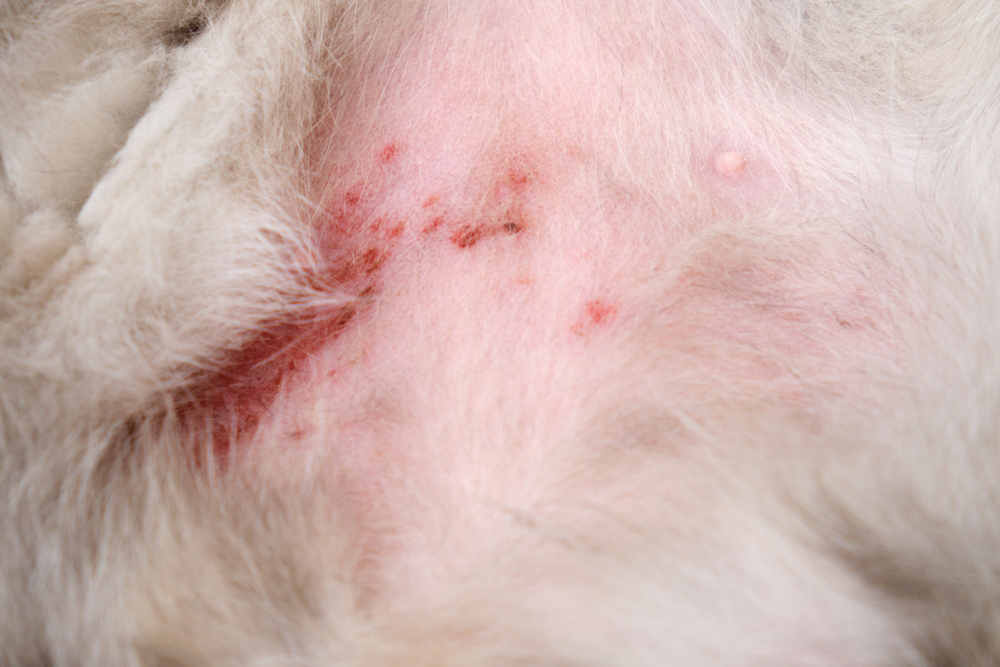
4. Stress or Anxiety
5. Hormonal Imbalances
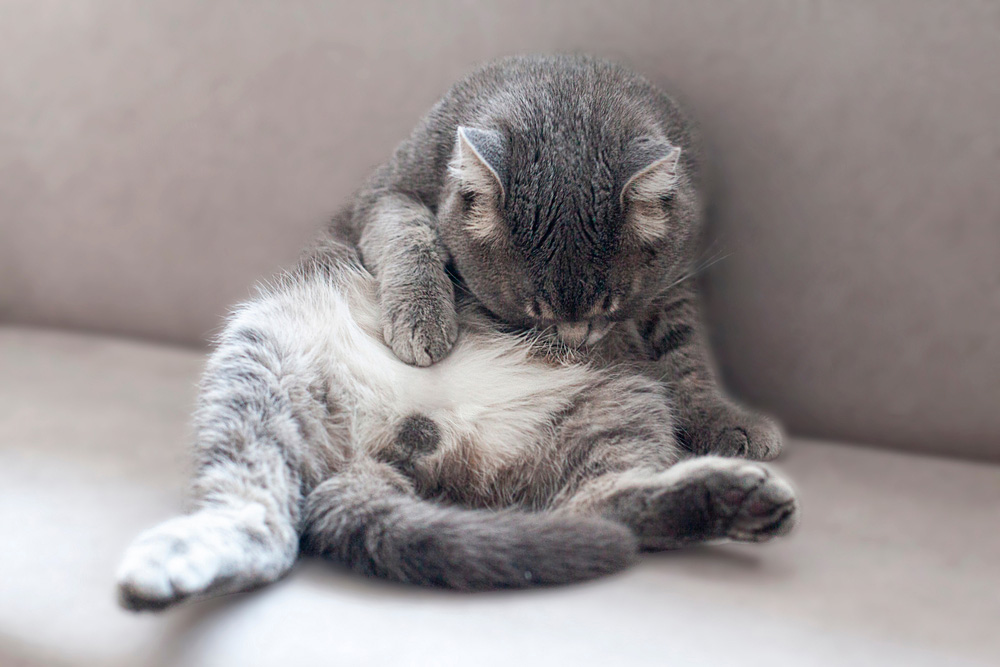
6. Compulsive Behavior
7. Skin Cancer
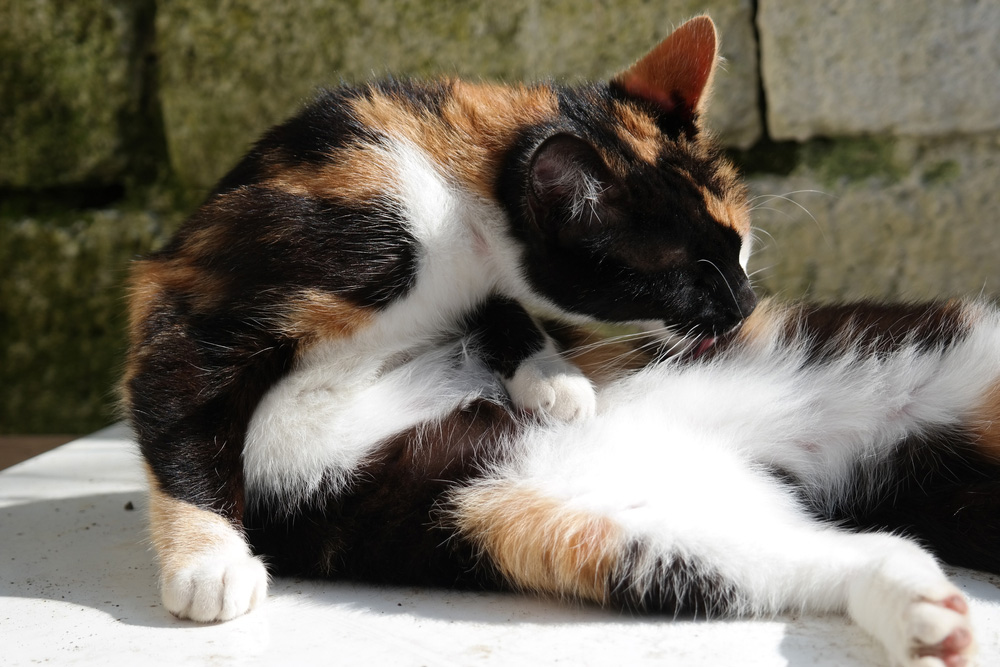
8. Abdominal Pain
Frequently Asked Questions
When Should I Be Concerned About My Cat Licking Their Belly?
Are There Any Specific Breeds More Prone to Licking Their Belly Too Much?
How Effective Are Pheromone Diffusers in Reducing Stress-Related Licking?
Summary

